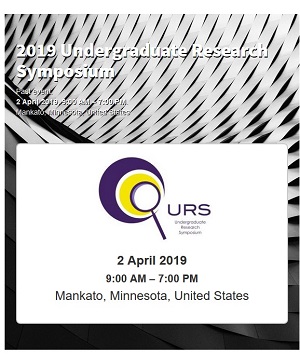Analysis of the Lost Chance vs No Chance Theses: Accommodation and Communication
Location
CSU 204
Start Date
2-4-2019 11:05 AM
End Date
2-4-2019 12:05 PM
Student's Major
History
Student's College
Social and Behavioral Sciences
Mentor's Name
Tao Peng
Mentor's Department
History
Mentor's College
Social and Behavioral Sciences
Description
In 1949, the Communist forces led by Mao Zedong took control of the whole of China. The Nationalist party retreated to Taiwan and, along with them, the support of the United States of America. The fate of foreign relations between China and the United States seemed grim, yet one man took an initiative. The ambassador to China, John Leighton Stuart, stayed in China in order to maintain influence and attempt to create relations with the new leaders. Due to perceptions and opposition from parts of China and the United States, Stuart failed to secure foreign relations. Some scholars argue that, due to opposition to these relations, Stuart had no chance to accommodate relations, while some say that, since he had some channels of communication, he had lost the chance.
After research into the subject, it is clear that, on the issue of policy accommodation, Stuart indeed had no chance. The opposing ideologies of the two nations could never agree. However, Stuart had multiple opportunities to meet with leading Communist leaders and maintain channels of communications. The issue with the Lost Chance/No Chance thesis is that it focuses on the issue of policy accommodation, but not on whether the two nations could disagree but still be in communication. Relying heavily on the notes and writings of John Leighton Stuart, including his 50 Years in China and The Forgotten Ambassador, it can be seen that the United States may have had no chance for accommodation, but had lost the chance for communication.
Analysis of the Lost Chance vs No Chance Theses: Accommodation and Communication
CSU 204
In 1949, the Communist forces led by Mao Zedong took control of the whole of China. The Nationalist party retreated to Taiwan and, along with them, the support of the United States of America. The fate of foreign relations between China and the United States seemed grim, yet one man took an initiative. The ambassador to China, John Leighton Stuart, stayed in China in order to maintain influence and attempt to create relations with the new leaders. Due to perceptions and opposition from parts of China and the United States, Stuart failed to secure foreign relations. Some scholars argue that, due to opposition to these relations, Stuart had no chance to accommodate relations, while some say that, since he had some channels of communication, he had lost the chance.
After research into the subject, it is clear that, on the issue of policy accommodation, Stuart indeed had no chance. The opposing ideologies of the two nations could never agree. However, Stuart had multiple opportunities to meet with leading Communist leaders and maintain channels of communications. The issue with the Lost Chance/No Chance thesis is that it focuses on the issue of policy accommodation, but not on whether the two nations could disagree but still be in communication. Relying heavily on the notes and writings of John Leighton Stuart, including his 50 Years in China and The Forgotten Ambassador, it can be seen that the United States may have had no chance for accommodation, but had lost the chance for communication.
Recommended Citation
Harnit, Nathan. "Analysis of the Lost Chance vs No Chance Theses: Accommodation and Communication." Undergraduate Research Symposium, Mankato, MN, April 2, 2019.
https://cornerstone.lib.mnsu.edu/urs/2019/oral-session-04/4




